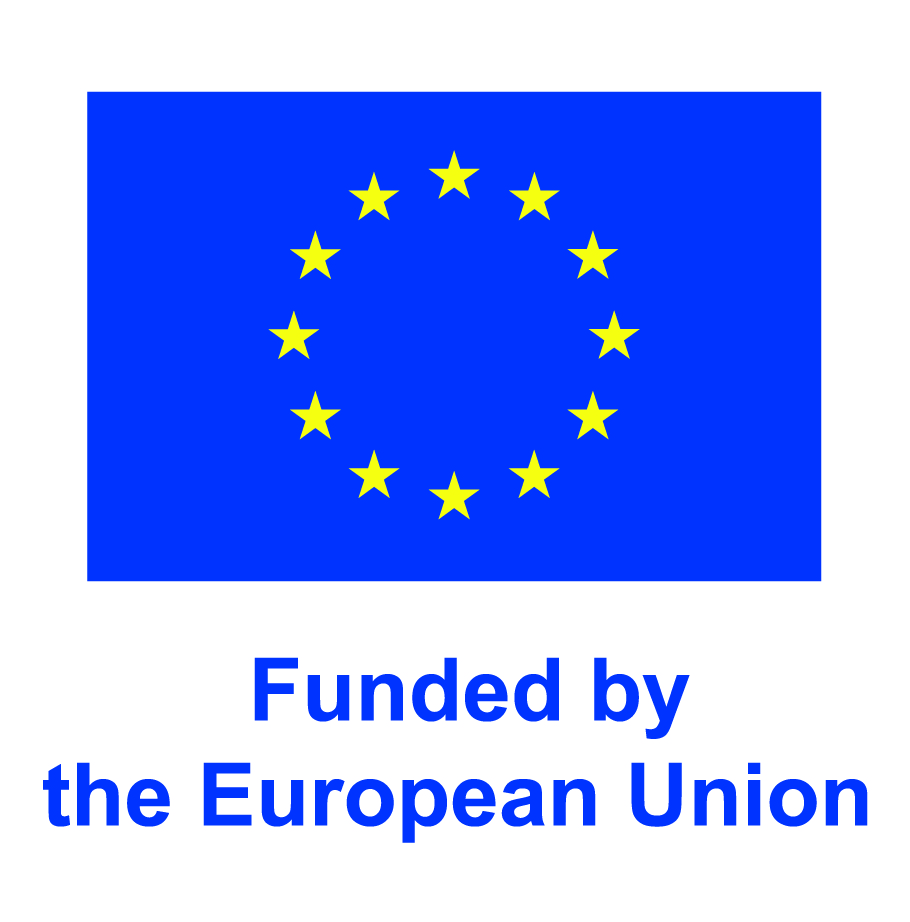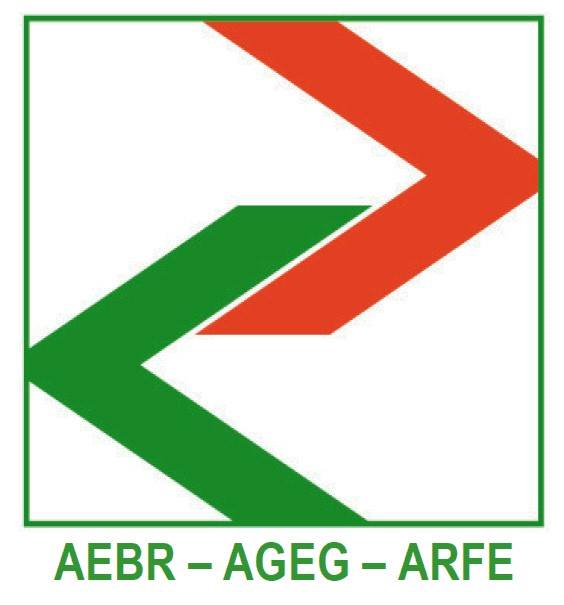Hi, my name is Pau and I’m an IVY volunteer in the project SB Manta through the organization EUCC-Deutschland which focuses in the promotion of sustainable development in the coasts of Germany. The main goal of the project is to help to develop sustainable tourism among the south Baltic while improving the conditions of the natural protected areas of the region, that is why there are organizations involved from the following countries: Denmark, Germany, Lithuania, Poland and Sweden. Ranging from National and Regional Nature Parks to Universities and NGO’s
The main tool the project wants to use to develop sustainable tourism is “Voluntourism”. This type of tourism focuses on creating a more stainable way of travelling where the tourist can do voluntary work in the places they travel as a way to improve local infrastructure, ecosystems, etc.
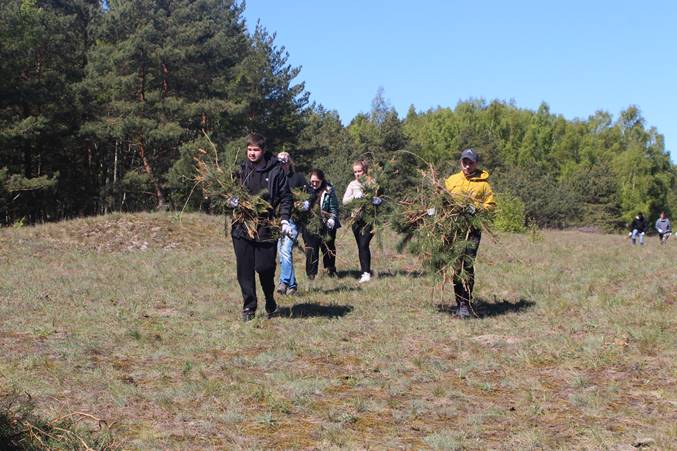
Voluntourism finds its origins in the early 20th century (sorry but I’m a historian and I cannot resist, it will be short though, I promise) and consisted in projects, usually conducted by young people who wanted to see the world by helping others. Especially after the 2nd world war this took way more importance and it became a way of establishing international solidarity bonds among different parts of the world. Nonetheless this model was mainly applied towards countries of the global south; it has been just recently when this model also had become popular in countries of the global north in form of environmental volunteering.
While tourism is one of the main sources of income for many regions, especially in the rural coastal areas, well known are the negative effects of mass tourism in both social and environmental issues.
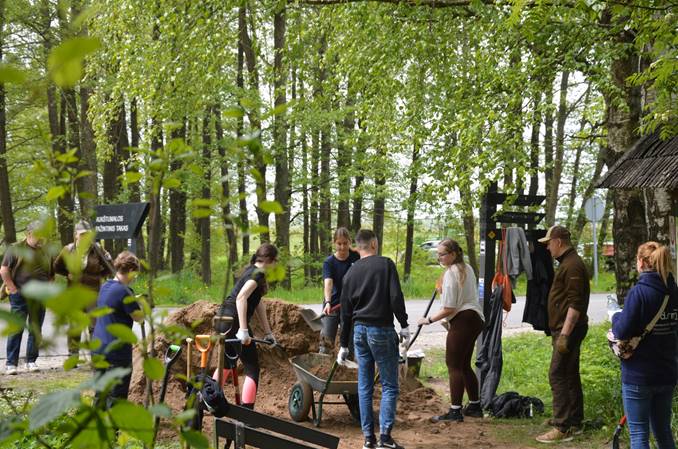
Among their consequences we can find overuse of limited infrastructure which eventually may lead to deterioration of public services, overcrowded spots, erosion of natural areas or degradation of the cultural and natural heritage places. This is why the current SB Manta project, following this new wave of voluntourism in northern Europe, aims to develop new missions of voluntary works to both improve the management of protected areas as well as to reduce the negative impact of tourism in those regions while still keeping the good parts of it.
The activities conducted past week in Lithuania are a model of what the SB Manta project aims to develop. The participants of the pilot activity were 30 young people coming through German, Lithuanian and Polish delegations. People from 9 different countries, from South Africa to Bangladesh, were brought together to work in the protected areas of Lithuania Minor. Each day of the trip was dedicated to a specific regional park of the area; being those, Rambino Regional Park, Neumunos Delta Regional Park and Pajurio Regional Park. All of them containing very important ecosystems inside the program Natura 2000. Each one, very diverse from each other, held different activities of volunteering that helped to some extent the maintenance of this regional park ecosystems and infrastructure.
The first day the main task conducted was the removal of biomass from meadows which later was accompanied by a tour around the regional park which, in pagan times was considered to be one of the sacred places of the Lithuanian peoples before Christianisation. On the afternoon leisure time was given and many took the opportunity to paddle around the river with the kayaks and was followed by a night of Lithuanian folklore dances and music. The second day which was the hardest working one, consisted in the reparation and maintenance of educational trails which lasted the whole day and required some intense yet satisfying effort, which later was compensated with great food and even better music. The third and last day the main job was centred in the removal of pine trees from grey dunes in order to improve the quality of the ecosystem and a delicious dinner of Lithuanian traditional cuisine.

I would also like to emphasize the importance of the cultural exchange of the experience which was very viewed as one of the most important topics among all the people who assisted the event.
All this work which for a group or 30 volunteers only took three days and no more than 10 hours in total can add up for weeks or even months of labour for rangers. As the coordinator of the Regional Parks said “it’s all about mathematics, 30 people working for an hour adds up for a week’s work for a single person”. This is why this experience can become very valuable for regional and national parks if applied correctly.
This is just so far a pilot activity and the main goal was to discover the strengths and weaknesses of the experience as a whole which has been very useful since it will help to develop more meaningful voluntourism offers, both to the national parks and the volunteers itself.
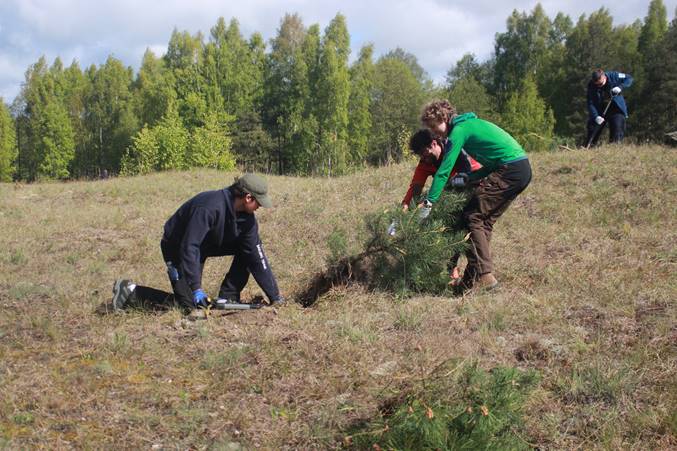
For the future there are some other proposed activities in pilot programs which will include more diverse type of voluntary work that can be very useful for local administrations. So far has been talked about projects of citizen science such as monitoring of sand dunes or bird species as well as other more hands on work like removing invasive species or the reparation of houses, barns or farms that constitute an important piece of cultural heritage for the region.
The cooperation aspect of the project among the regions is especially important. Even though each area might have different needs and objectives for the conservation of their areas there is a common goal of creating more sustainable and resilient tourism that instead of having negative consequences to the environment can have a neutral or even positive effect in nature and local communities. It’s also worth noticing that since voluntourism is still a very little market it is necessary to create cross-border cooperation offers that can reach multiple countries in order to assure its sustainability.
All in all, I’m really happy to form part of this initiative since I truly believe that it can make a difference and help to build a more positive approach to an economic sector that sometimes can have very bad externalities. I think this could help to create a better scope on tourism while developing more sustainable options that benefit both natural areas and local communities while creating satisfying experiences for the people who wants to participate on it.
– Pau, IVY Project Partner at EUCC – Die Küsten Union Deutschland e.V. (EUCC – Coastal Union Germany), for the Interreg project SB MANTA, under the programme Interreg South Baltic.

